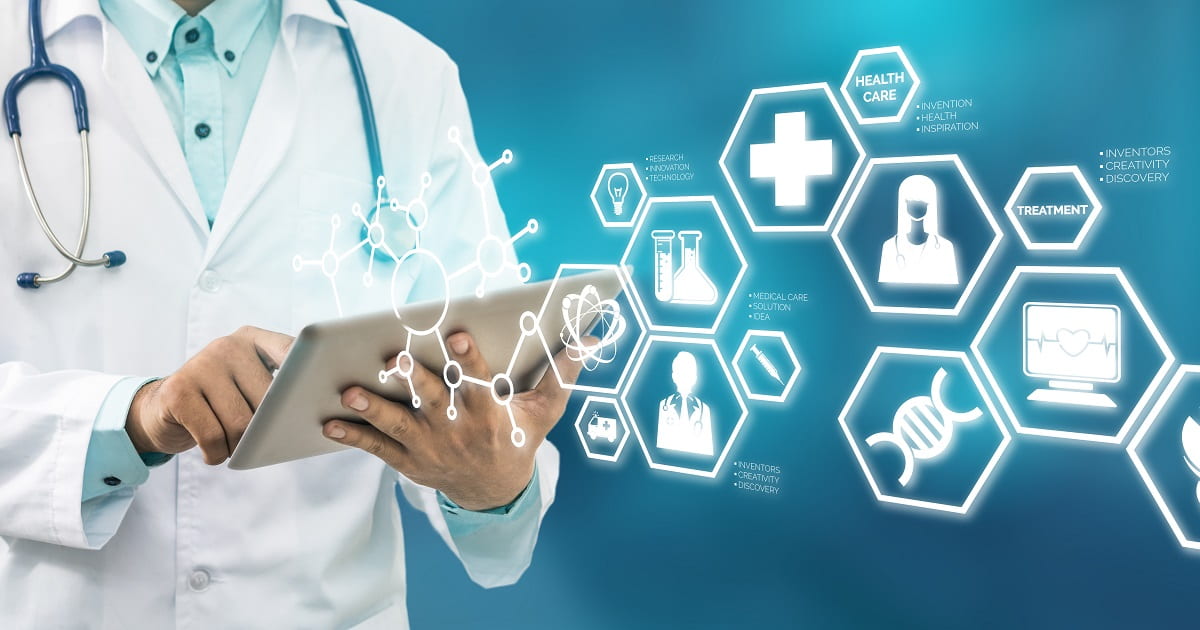
Health Technology, Digital Healthcare
Article | July 14, 2023
Introduction
Over the past couple of years, there has been a substantial rise in the burden of chronic conditions and treatment costs, along with the growing elderly population, which is transforming the healthcare sector at a rapid pace. As per a study, healthcare spending across the globe is anticipated to reach an unprecedented value to total US$ 18.3 trillion by 2030. In response to these trends, volume-based payment models are being replaced by outcome- or value-based models.
Predictive analytics helps health organizations to get in line with these new models and improve patient care and outcomes. From predicting critical conditions such as heart failure and septic shock to preventing readmissions, the recent advancements in big data analytics are boosting the adoption of new predictive analytics solutions that aid clinicians improve outcomes and cut costs.
Predictive analytics in healthcare is most helpful with clinical care, administrative tasks, and managing operations. More importantly, the technology is already making a difference in a wide range of healthcare settings, from small private doctor's offices and large academic hospitals to healthcare insurance companies.
How is Growing Healthcare Data Favoring the Penetration of Predictive Analytics?
The growing inclination toward digitalization in the healthcare industry has led to the creation of huge new data sets. These include radiology images, electronic medical record (EMR) systems, lab results, and health claims data. The amount of data is expected to reach new avenues with increasing genomics and cytogenesis research data in the near future.
New data is being generated and collected by the novel medical devices at the edge, such as monitors and patient wearables. In addition, outside the healthcare setting, patients are generating quasi-health data through the use of health monitoring applications, fitness trackers, and personal wearable devices.
By using data from these sources, health care providers can find new ways to use predictive modeling for health risks, predictive analytics for medical diagnosis, and prescriptive analytics for personalized medicine.
Predictive analytics has become a crucial component of any strategy for health analytics. Today, it's an essential tool for measuring, combining, and making sense of biometric, psychosocial, and behavioral data that wasn't available or was very hard to get a hold of until recently. Here are some of the applications of predictive analytics for healthcare
Identifying Patients at Risk
Clinical Predictions
Disease Progression and Comorbidities
Predicting Length of Stay
Speeding Treatment of Critical Conditions
Reducing Readmissions
The Future Story
With the growing prominence of innovative technologies across the healthcare industry, a number of health IT providers are focusing on developing their own analytics software and engines to assist healthcare spaces deliver optimal patient care.
For instance, in 2020, Eversana, a U.S.-based provider of innovative solutions to the life sciences industry, announced the introduction of its ACTICS predictive analytics solution, which enables clinical spaces to combine multiple data sources into a single comprehensive system.
Also, some U.S. companies are partnering with healthcare institutions to develop proprietary algorithms designed to enhance organizational performance, improve clinical care, and increase operational efficiency. Such developments are projected to increase the popularity of predictive analytics solutions in the healthcare sector in the coming years.
Read More

Digital Healthcare
Article | November 29, 2023
COVID-19 has been a catalyst for change, with the diagnostics industry taking centre stage and rising to the challenge of a global pandemic. One of the silver linings of this mammoth task has been the unprecedented time and focus dedicated to finding new technologies and solutions within the sector.
The lessons learned from the pandemic now need to be taken forward to improve breast and cervical cancer detection, prevention and treatment across the UK over the coming years.
In the more immediate term, the diagnostics industry, alongside public health leaders, faces a daunting backlog as screening programmes for breast and cervical cancer were put on pause for months. These two life-saving tests have been some of the most overlooked during the pandemic and getting back on track with screening is critical as we start to turn the corner. We believe innovation in diagnostics, particularly artificial intelligence guided imaging, is a key tool to tackle delays in breast and cervical cancer diagnosis.
The scale of the backlog in missed appointments is vast. In the UK, an estimated 600,000 cervical screening appointments were missed in April and May 2020. And an estimated 986,000 women missed their mammograms, of which an estimated 10,700 could be living with undiagnosed breast cancer. It is clear that hundreds of thousands of women have been affected as COVID-19 resulted in the reprioritisation of healthcare systems and resource allocation.
Both cervical and breast cancer screening are well suited for digital technologies and the application of AI, given both require highly trained medical professionals to identify rare, subtle changes visually –a process that can be tedious, time-consuming and error prone. Artificial intelligence and computer vision are technologies which could help to significantly improve this.
What does AI mean in this context?
Before examining the three specific areas where digitisation and AI can help, it is important to define what we mean by AI. It is the application of AI to medical imaging to help accelerate detection and diagnosis. Digitisation is the vital first step in implementing an AI-driven solution – high quality images demand advanced cloud storage solutions and high resolution. The better the quality of the input, the more effectively trained an AI system will be.
The first area where AI-guided imaging can play a role is workflow prioritisation. AI, along with increased screening units and mammographers, has the potential to increase breast cancer screening capacity, by removing the need for review by two radiologists. When used as part of a screening programme, AI could effectively and efficiently highlight the areas that are of particular interest for the reader, in the case of breast screening, or cytotechnologist when considering cervical screening.
Based on a comparison with the average time taken to read a breast screening image, with AI 13% less time is needed to read mammogram images, improving the efficiency with which images are reviewed. This time saving could mean that radiologists could read more cases a day and potentially clear the backlog more quickly.
For digital cytology for cervical cancer screening, the system is able to evaluate tens of thousands of cells from a single patient in a matter of seconds and present the most relevant diagnostic material to a trained medical professional for the final diagnosis. The job of a cytotechnologist is to build a case based on the cells they see. Utilising these tools, we are finding that cytotechnologists and pathologists are significantly increasing their efficiency without sacrificing accuracy to help alleviate the backlog of cervical screening we are seeing in many countries.
Prioritising the most vulnerable patients
Another key opportunity is applying AI to risk stratification, as it could help to identify women who are particularly at risk and push them further up the queue for regular screening. Conversely, it would also allow the screening interval for those women at lower risk to be extended, creating a more efficient and targeted breast screening programme.
For example, women with dense breast tissue have a greater risk factor than having two immediate family members who have suffered from breast cancer. What’s more, dense breasts make it more difficult to identify cancerous cells in standard mammograms. This means that in some cases cancers will be missed, and in others, women will be unnecessarily recalled for further investigation.
A simple way to ensure that those most at risk of developing breast cancer are prioritised for screening and seen more regularly would be to analyse all women on the waiting list with AI-guided breast density software. This would allow clinicians to retrospectively identify those women most at risk and move them to the top of the waiting list for mammograms.
In the short term, to help tackle the screening backlog, prior mammograms of women on the waiting list could be analysed using the breast density software, so that women at highest risk could be seen first.
Finding new workforce models
Being able to pool resources will allow resource to be matched to demand beyond borders. Globally, more than half a million women are diagnosed with cervical cancer each year and the majority of these occur where there is a lack of guidance to conduct the screening programme. The digital transformation of cervical screening can connect populations that desperately need screening to resources where that expertise exists. For example, developing countries in Africa could collect samples from patients and image these locally, but rely on resources in the UK to support the interpretation of the images and diagnoses. Digital diagnostics brings the promise of a ‘taxi-hailing’ type model to cervical cancer screening – connecting groups with resources (drivers with cars) to those who are in need (passengers): this is an efficient way of connecting laboratory professionals to doctors and patients around the world.
It’s going to take many months to get cancer screening programmes up and running at normal levels again, with continued social distancing measures and additional infection control impacting turnaround times. But diagnostic innovation is on a trajectory that we cannot ignore. It will be key to getting cancer screening programmes get back on track. AI is a fundamental piece of the innovation puzzle and we are proud to be at the forefront of AI solutions for our customers and partners.
Read More

Digital Healthcare, Medical Devices
Article | June 27, 2023
Discover the potential of EHR implementation in revolutionizing clinical processes. Uncover strategies for addressing EHR ethical issues, ensuring integration that prioritizes patient-centered care.
Amidst the fusion of healthcare and technology, integrating electronic health records (EHRs) has emerged as a transformative element in modern medical practice. As a digital repository for a patient's medical journey, EHRs present unprecedented prospects for elevated care quality, improved data accessibility, and cost-effectiveness. Nevertheless, these advancements bring forth an array of EHR ethical issues that demand meticulous attention. In this context, establishing and adhering to the best practices for the ethical training of EHRs assumes paramount importance and a moral obligation. By skillfully navigating the intricate convergence of technology, patient confidentiality, and conscientious healthcare, these ethical EHR best practices illuminate the path toward a future where innovation and ethical principles harmoniously coexist.
1. Upholding Privacy and Confidentiality
Revealing a patient's information to external parties should strictly happen with the patient's explicit consent or within the parameters defined by legal regulations. Data stemming from clinical interactions is confidential and requires rigorous protection. The effective operation of EHRs requires authorized access by healthcare institutions, insurers, and related entities. Access by users is contingent upon predefined role-based privileges. The administrator identifies users, specifies the extent of information accessibility, and allocates exclusive usernames and passwords. Users must be conscientious about responsibly utilizing the information they access within their designated roles. Therefore, assigning user privileges plays a pivotal role in securing medical records. However, while regulating data access remains crucial, it doesn’t completely ensure confidentiality. Strengthening security through comprehensive privacy and security protocols remains essential for reinforcing patient data's inviolabilit.
2. Safeguarding Against Data Breaches
Ensuring patient privacy and safeguarding sensitive medical data is paramount in EHR ethical training. The imperatives of inadequate data security, encompassing compromised medical information, unauthorized access due to weak password safeguards, and the lack of encryption, accentuate the immediate need for a holistic approach. Employing strategies such as secure cloud storage, robust password protocols, two-factor authentication, and encryption is pivotal in enhancing data security, preventing the mishandling of patient records, and abiding by ethical standards. The potential legal and financial consequences of breaches underscore the criticality of these practices in maintaining patient trust and confidentiality within the digital healthcare domain.
3. EHR System Implementation
The integration of EHRs within healthcare organizations poses significant challenges, including resource waste, provider dissatisfaction, diminished patient trust, and potential safety risks. Successful EHR development, implementation, and upkeep demand substantial investment and collaboration among stakeholders, including clinicians, IT experts, educators, and consultants. Clinicians' active engagement is often underestimated, leading to the failure of EHR projects; therefore, clinician-led guidance is crucial in tasks such as EHR selection, workflow design, and quality improvement. Thoroughly mapping workflows before selecting an EHR is crucial, while maintaining user-friendly interfaces remains essential for success. Neglecting these aspects can reduce efficiency, compromise care, and increase safety threats. By prioritizing comprehensive planning, engaging clinicians, and optimizing user interfaces, healthcare institutions can ensure ethical and efficient EHR integration, ultimately enhancing patient care and safety.
4. Maintaining Data Accuracy
Upholding data accuracy stands as a fundamental principle in the ethical EHR domain. The integrity of information guarantees its unaltered and precise nature, contributing significantly to the enhancement of patient safety, reduction of healthcare errors, mitigation of health disparities, and betterment of public health. Nevertheless, concerns have been voiced regarding the reliability of data input into electronic records. The improper utilization of functionalities such as 'cut and paste' can lead to misleading portrayals of a patient's condition and treatment, breaching ethical standards. This practice poses elevated risks to patients and increases the liability of clinicians and institutions. Challenges also arise from drop-down menus that limit a clinician's choices, potentially giving rise to substantial errors, especially under time constraints. The collaborative efforts of clinicians and vendors can address software concerns, promoting user-friendly, reliable EHRs while tackling EHR ethical issues. Furthermore, data loss during transfers raises pertinent concerns about the accuracy of the database, a critical aspect as patient care decisions hinge on this data.
5. Guaranteeing Data Authenticity
The assurance of documentation integrity pertains to the accurate and precise nature of the comprehensive health record. This includes principles of information governance, identifying patients, validating authorship, handling amendments and corrections in records, and auditing documentation validity while submitting reimbursement claims. EHR tools offer flexible documentation options through the utilization of templates and smart phrases, assisting in precise record-keeping. However, if these tools are misused, doubts about data integrity can arise, making information unreliable and possibly raising concerns about fraudulent activity. Established policies and procedures, including audit functions, must be in place to ensure proper billing. With adequate safeguards, records may accurately represent the patient's condition at admission and over time. Providers must understand the importance of reviewing and refining default data to ensure that only patient-specific information for that visit is recorded. In contrast, irrelevant data from default templates is removed.
6. Validating Dictation to Prevent Errors
Voice recognition systems lacking a validation step pose considerable challenges in maintaining data accuracy and preventing documentation errors within organizations, particularly when it comes to ethical issues with electronic health records. EHR companies need to implement a protocol requiring providers to promptly assess, modify, and validate dictated information. Given these documents' frequent use and sharing, precise and high-quality documentation in EHR systems is of utmost significance. The adoption of EHRs has led to substantial shifts in provider workflows and documentation processes. However, providers still need to clearly outline or fully understand comprehensive best practices for maintaining high-quality documentation in EHRs. Advancements are necessary to enhance documentation tools and methods, with a renewed emphasis on the essential aspects of data accuracy and quality. This should precede the widespread implementation of interoperable health information exchange initiatives.
7. Ensuring Accurate Documentation
Maintaining the integrity of documentation is compromised when incorrect information finds its way onto the wrong patient's health record. Patient identification errors can influence clinical decisions, endanger patient safety, violate privacy and security, and lead to redundant testing and escalated expenses for patients as well as providers. The propagation of patient identification mistakes can rapidly expand within EHR, personal health records, and Health Information Exchange (HIE) networks as information disseminates. Failing to implement advanced front-end solutions that incorporate robust matching algorithms or innovative techniques like biometrics or fingerprinting can expose organizations to risk. EHRs can incorporate targeted alerts to anticipate safety problems, like blood type inconsistencies or allergies, during treatment, addressing EHR issues. Organizations must institute a patient identity integrity program, integrating performance improvement metrics to monitor error rates and duplicate records in their electronic master patient index. Policies and procedures must ensure the accuracy of critical demographic data, facilitating the linkage of records within and across systems. Addressing the initial point of data capture as a primary front-end verification is also vital within policies.
8. Preserving the Authenticity of Audit Trails
Effective audits are crucial to ensuring that the health record documentation aligns with the reported level of service, fulfills reimbursement requirements set by payers, and guarantees that only authorized personnel access patient medical records and make entries. The audit trail must encompass the user's name, the triggering application, workstation details, the specific document, a description of the audited event (such as amendments, corrections, or deletions), and the timestamp. This audit trail outlines modifications (including deletions) within the health record and provides auditors with a foundation for compliance audits. Inadequate audit trail functionality within EHRs raises concerns about the integrity of health record documentation, potentially exposing organizations to legal liabilities and inadvertently fostering or shielding criminal activities. It may become challenging to ascertain if corrections or amendments were executed, who authorized the changes, or the nature of the modifications. In addition to the inherent unintentional errors that documentation might encounter, audit trail functionality can aid in detecting instances where records are altered to obstruct the disclosure of detrimental information. Organizations can utilize EHR trends to leverage audit trail features for identifying and analyzing patterns in health record usage. Typically, users can generate reports over specific time frames categorized by provider or provider type, with results directed to a compliance committee or the organization's governing body.
9. Fostering Compliance Awareness
Enhancing ethical EHR training involves a strategic focus on ensuring providers are well-versed in compliance and legal risks, starting from the EHR training phase. To address EHR problems, organizations should implement educational initiatives aimed at mitigating compliance issues. Staff education must emphasize the integrity of health record documentation, with a continuous program monitored and provided quarterly or annually. Addressing the 'who, what, why, and how' ensures a solid grasp of organizational practices that uphold individual best practices, encompassing identifying potential fraud, universal and administrative security measures, data validity, authorship, continual education's significance, and strategies for daily fraud prevention.
10. Conducting Feedback Sessions
Contrary to common assumptions, ongoing training is essential post-EHR implementation. After installing the EHR and initiating patient interactions, challenges inevitably emerge—be it staff unfamiliarity with functions or the need to revamp workflow processes. Promptly identifying these concerns to prevent errors and swiftly resolving them involves collecting feedback from EHR users among the staff, particularly in relation to EHR ethical issues. During the weeks after the system's launch, contemplate arranging routine meetings to gather insights. Ensuring diverse representation, including clinical staff, physicians, administrators, billing, and front desk personnel, is crucial. Seek input on their adaptation to changes and areas requiring improvement. Determine if specific training concepts need reinforcement. Surveys can be used in place of frequent meetings. Subsequently, prioritizing problem areas aids focused resolution by promptly addressing critical matters. The introduction of incremental changes helps staff adapt to the EHR seamlessly, safeguarding patient care continuity during the transition.
The Path Ahead
Following these ethical EHR training best practices ensures the accuracy and reliability of patient data, leading to improved clinical decision-making and patient safety. By maintaining documentation integrity, professionals can confidently provide quality care and reduce the risk of errors. Ethical EHR training further strengthens compliance with legal regulations, safeguarding both the organization as well as the healthcare provider from potential legal liabilities. Moreover, adhering to best practices promotes efficient workflows, enhancing productivity, and streamlining operations. Patient trust and confidence are strengthened as professionals demonstrate their commitment to data security, confidentiality, and ethical conduct. Ultimately, by upholding ethical EHR training standards, professionals contribute to a robust healthcare system by fostering positive patient outcomes, maintaining trust, and supporting the principles of ethical healthcare delivery.
Read More

Future of Healthcare
Article | December 27, 2021
Momentum in digital healthcare transformation… it’s massive, and much needed.
As organizations adapt to new modes of care, demands on resources, and consumer expectations, payors and providers are eyeing opportunities to reduce costs, improve care, build awareness, and expand relationships.Here are 8 trends we’re currently tracking into 2021:
TREND 1
The evolution of healthcare will be characterized by a reengineering of clinical care and operations around digital health and pervasive real-time use of data and advanced analytics. Gartner
TREND 2
The current landscape has underscored the importance of improving workflows, achieving greater clinical efficiencies and better integrating data across organizations through tools like natural language processing, remote process automation, and cloud-based technologies. Becker’s Hospital Review
TREND 3
Now more than ever, healthcare organizations must build a multi-channel digital experience portfolio to deliver personalized consumer-centric experiences that drive engagement and reduce costs. Becker’s Hospital Review
TREND 4
With increasing emphasis on cross-platform (EHR, CRM, CMS, virtual health, etc.) and cross-organizational data portability, advanced APIs and interoperability should ensure secure and efficient data exchanges between EHR systems, devices, and various channels of care. Forbes
TREND 5
COVID-19 has pushed telehealth into the mainstream, and adoption has gained impressive traction. Expect expansions of asynchronous virtual care leveraging integrated wearable technologies. Business Insider Intelligence / Research and Markets
TREND 6
With more healthcare data available, artificial intelligence and machine learning technologies will provide greater speed and insights to analyze and predict outcomes that drive change in patient care. Gartner / Forrester
TREND 7
Organizations will continue looking to Social Determinant of Health strategies to help understand health disparities – including those highlighted through COVID-19 infections – and alleviate some of the financial strains while delivering high quality care. Fierce Healthcare / Healthify
TREND 8
Successfully making the transition to offering greater price transparency will not only put healthcare organizations in compliance, but help satisfy patient demand, increasing patient engagement and even point-of-service payments. Health Leaders Media
The strategy imperative
With so much call for transformation, it’s vital to resist the pull of “shiny object” point solutions and to, instead, build a fully-considered digital strategy. Need help getting started? Our healthcare experts help the nation’s largest providers and payers navigate and execute their north star strategy, tackling specific challenges through assessments, best-practice advice, strategy, and roadmaps. Explore our thought leadership and connect with us to learn more today.
Read More